#princess of battenberg
Explore tagged Tumblr posts
Text

❥ 27 JANUARY 2025 | The Prince of Wales gave a speech during the Holocaust memorial service at London's Guildhall.
During the speech, he paid tribute to his great-grandmother, Prince Philip's mother, Princess Alice of Battenberg.
“I am honoured to join you today to mark Holocaust Memorial Day and to remember the millions murdered during the Holocaust and in subsequent genocides. We also remember those survivors, who have lived with the scars both mental and physical. Their bravery in sharing with us the most harrowing moments of their lives, are extremely powerful and ensure we never forget. I assure them, we never will.
On this, the 80th anniversary of the liberation of Auschwitz, we also recall those who risked their own lives to help and save others. They risked death, torture and persecution to defy the aggressors.
I was recently reminded of my great-grandmother, Princess Alice of Battenberg, who lived in Athens during the Second World War.
This is an extract from the book ‘Heroes of the Holocaust’:
'In the early days of German occupation, conditions deteriorated rapidly as food ran out when an estimated 300,000 people died…Conditions were particularly severe in Athens and its port, Piraeus. Alice worked tirelessly for the Red Cross, helping to organise soup kitchens, opening shelters for orphaned children, and setting up a nursing system for poor areas of the city. It was at this time that Princess Alice gave refuge to a Jewish widow, Rachel Cohen, and two of her five children to save them from deportation to the death camps.
This was an extremely risky undertaking in the close-packed streets of Athens where there was always the danger of spies and gossip….On 15 October 1943, Rachel Cohen and Tilde moved into Alice’s home. The staff were told that Mrs Cohen was the former governess to her children…Michel, the youngest of the four brothers, joined them about a month later…. There were great risks, not least the position of the house – the front door faced the residence of the local Archbishop, which always had a German guard on duty outside. She was sometimes interviewed by the Gestapo and used her deafness to an advantage, pretending not to understand their questions or what they were talking about. It worked and they soon gave up. Thanks to her, the entire Cohen family survived the war.' It has been a great honour for Catherine and I to join you all today.
Thank you.

Princess Alice was honoured as 'Righteous Among the Nations' for hiding the Cohens in her house in Athens during the War and was posthumously named a Hero of the Holocaust by the British Government in 2010.
#british royal family#royalty#british royals#brf#royals#royal#british royalty#prince of wales#the prince of wales#prince william#william prince of wales#prince philip#duke of edinburgh#princess alice#princess alice of battenberg#royaltyedit#royalty edit#my edit#speeches#27012025#2025#by william#80thHolocaustMemorial25#william wales#quotes
105 notes
·
View notes
Text


Royal Hair Challenge 2025 🤍
Day 2: Favorite Updos of the old British Royal Family
⋅⋆ ♡ ⋆ ⋅
#RoyalHairChallenge2025#Royal hair#royalty edit#European royals#brf#British royal family#British royals#Victorian era#my edit#made by me#queen Alexandra#princess Alice#Princess Victoria of Hesse#marchioness of Milford haven#Battenberg#princess Louise Duchess of Argyll#elizabeth bowes lyon#Queen mother#the queen mother#princess Mary#princess Royal#Princess Charlotte#princess elisabeth
63 notes
·
View notes
Text





Darmstadt, 1880s.
#hesse#romanov#grand duchess elizabeth feodorovna#empress alexandra feodorovna#grand duke serge alexandrovich#louis iv#ernest louis grand duke of hesse#princess alice of battenberg#princess victoria of hesse#ella with alice :')#*you can imagine how happy i am to be an aunt & long for the moment when i can see the dear baby*
55 notes
·
View notes
Text

Grand Duke Louis IV of Hesse with his surviving children: Princess Victoria of Battenberg, Marchioness of Milford-Haven, Grand Duchess Elizabeth Feodorovna of Russia, Princess Irene of Prussia, Empress Alexandra Feodorovna of Russia and Grand Duke Ernest Louis of Hesse, 1884.
#Grand Duke Louis IV of Hesse#grand duke ludwig iv of hesse#Princess Victoria of Battenberg#princess victoria marchioness of milford haven#Grand Duchess Elizabeth Feodorovna of Russia#Grand Duchess Elizabeth Feodorovna#Grand Duchess elizabeth of russia#empress alexandra feodorovna of russia#empress alexandra feodorovna#empress alexandra of russia#Princess Irene of Prussia#princess henry of prussia#Grand Duke Ernest Louis of Hesse#princess alix of hesse#princess victoria of hesse#princess irene of hesse#princess elizabeth of hesse#1880s#1884#imperial russia#imperial family#russian imperial family#romanovs#victorian#colored photography#british royal family#german royalty#1880s fashion#history colored
76 notes
·
View notes
Text

Tsar Nicholas II at the train window with Princess Victoria, her husband Prince Louis and their daughter Princess Alice.
#tsar nicholas ii#nicholas ii#princess victoria of hesse#louis of battenberg#princess alice of battenberg#tsar#hesse#my own#imperial train
31 notes
·
View notes
Text

Victoria-1886
#Queen Victoria#British Royal Family#Prince Alexander#UK#Battenberg#House of Hanover#Princess Beatrice#monarchy#royal birth#christening#Buckingham Palace#19th century#Victorian era#British Empire#Grandmother of Europe#1886
20 notes
·
View notes
Text
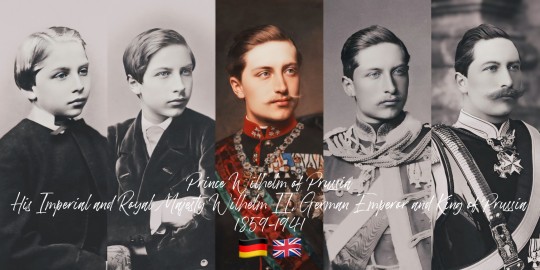
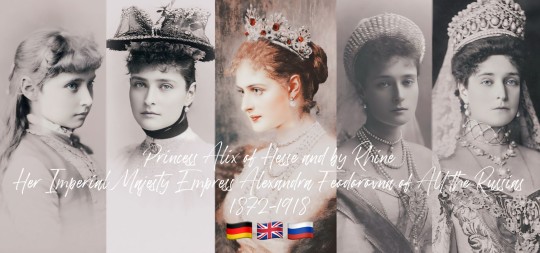
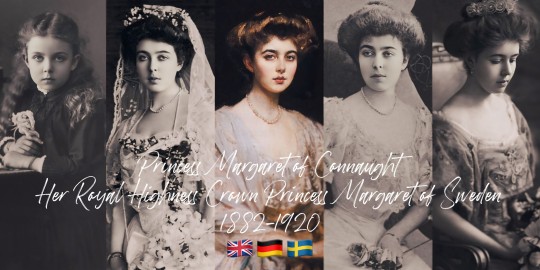
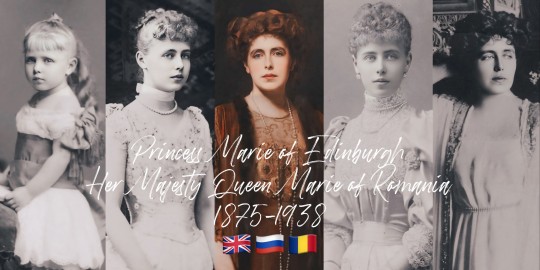
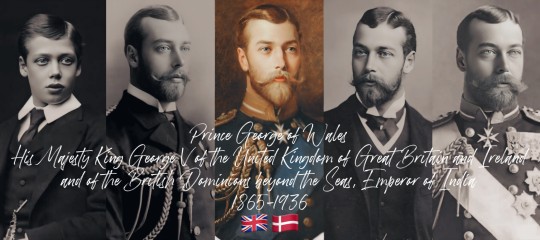
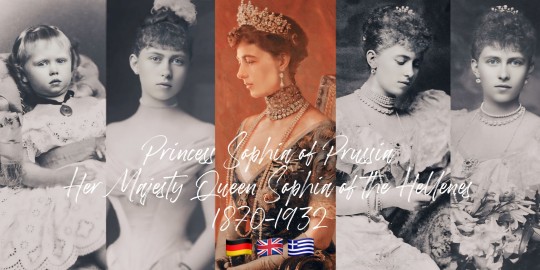
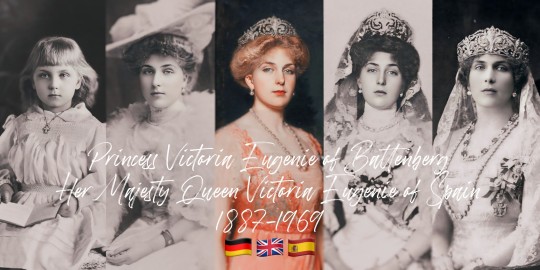
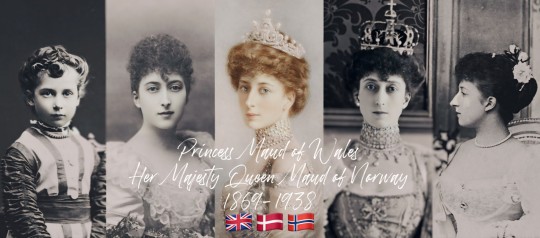
"The Monarchs of Queen Victoria’s Legacy"
Wilhelm II was the first of Queen Victoria's grandchildren to ascend to a throne, becoming German Emperor in 1888. His reign initiated the lineage of monarchs descended from Victoria. The last to be crowned was Marie of Romania in 1914, marking the end of an era for Victoria's royal progeny.
Queen Maud of Norway holds the distinction of having the longest tenure as Queen Consort among Queen Victoria's grandchildren, with a reign that spanned 33 years. Her time on the throne was characterized by a harmonious blend of British heritage and Norwegian culture, leaving a legacy of benevolence and cultural patronage. Conversely, Queen Sophia's role as Queen Consort of the Hellenes was the briefest, lasting just about 4 years due to the political upheavals of World War I and Greece's National Schism, which led to her husband's abdication. Despite the short span, her resilience and dedication to her royal duties remained unwavering.
The execution of Empress Alexandra Feodorovna was a deeply tragic event, reflecting the brutal reality of the Russian Revolution. On the night of 16-17 July 1918, she and her family were executed by Bolshevik revolutionaries in Yekaterinburg. Alexandra witnessed the murder of her husband, Tsar Nicholas II, before she herself was killed with a gunshot to the head. The violence of that night brought an abrupt and grim end to the Romanov dynasty, extinguishing the lives of the last imperial family of Russia in a stark and merciless manner. Her death marked the first among Queen Victoria’s crowned grandchildren. In contrast, Queen Victoria Eugenie of Spain lived through the upheavals of the 20th century, witnessing the restoration of the Spanish monarchy. She passed away in 1969, the last of Victoria’s crowned grandchildren, her life reflecting the dramatic changes of her time.
George V’s United Kingdom, a realm where tradition blends with modernity, continues to stand firm. The monarchy, a symbol of continuity, has weathered the storms of change, its crown passed down through generations, still reigning with a sense of duty and connection to the people.
Maud of Norway’s legacy endures in the serene beauty of Norway, where the monarchy remains a cherished institution. Her reign, characterized by a quiet strength and a nurturing presence, is remembered fondly, and the royal house she helped establish continues to flourish.
Margaret of Connaught’s Swedish monarchy, into which she married, stands resilient. Though she never became queen, her descendants uphold the traditions and values she embodied, maintaining the monarchy as a pillar of Swedish national identity.
Victoria Eugenie of Spain saw the Spanish monarchy navigate the tumultuous waters of the 20th century, enduring a republic and a dictatorship before being restored. Today, it stands as a testament to resilience, with her bloodline still on the throne, embodying the spirit of reconciliation and progress.
In stark contrast, the fates of other monarchies were marked by tragedy:
Wilhelm II witnessed the fall of his German Empire in the aftermath of World War I. His abdication marked the end of an era, and he spent his remaining years in exile, a once-mighty emperor without a throne, reflecting on the lost glory of his realm.
Sophia of Hellenes experienced the disintegration of the Kingdom of Greece amidst political upheaval. The monarchy, once a symbol of national unity, was abolished, leaving her and her family to face the harsh reality of a world that had moved beyond the age of empires.
Alexandra Feodorovna’s Russian Empire crumbled during the Bolshevik Revolution. The tragic end of the Romanov dynasty saw her and her family executed, their fates sealed by the tides of revolution that swept away centuries of monarchical rule.
Marie of Romania’s kingdom, once a beacon of hope in the aftermath of World War I, eventually succumbed to the forces of history. The monarchy was abolished after World War II, and the royal family faced the stark reality of a republic.
#wilhelm ii#Marie of Edinburgh#Marie of romania#George v#alix of hesse#alexandra feodorovna#Margaret of connaught#Margaret of Sweden#Victoria eugenie of Spain#Sophia of Prussia#Sophia of Hellenes#Sophia of greece#queen maud#princess maud of wales#Victoria eugenie of battenberg
47 notes
·
View notes
Text


♡ Grand Duchess Elisabeth Feodorovna with her niece, Princess Alice of Battenberg, 1888/1889. ♡
#grand duchess elisabeth feodorovna#elisabeth of hesse#princess alice of battenberg#princess alice of greece and denmark#rare photos#1880s
36 notes
·
View notes
Text

The Hessian grand ducal and British royal families, 1882.
#how many can you recognize?#I am afraid of all the tags i'll need#thankfully I can't recognize all of them#two types of eyes#Alix is so cute!!!#romanovs#history#historical photos#romanov#romanov family#russian royalty#german royalty#british royal family#british royalty#english royalty#1882#1880s#princess beatrice of battenberg#alexandra of denmark#queen alexandra#edward vii#king Edward vii#louise princess royal#princess victoria of wales#maud of norway#maud of wales#louis iv of hesse#ernst of hesse#alix of hesse#alexandra feodorovna
28 notes
·
View notes
Text










Remarkable Woman 🥰
41 notes
·
View notes
Text
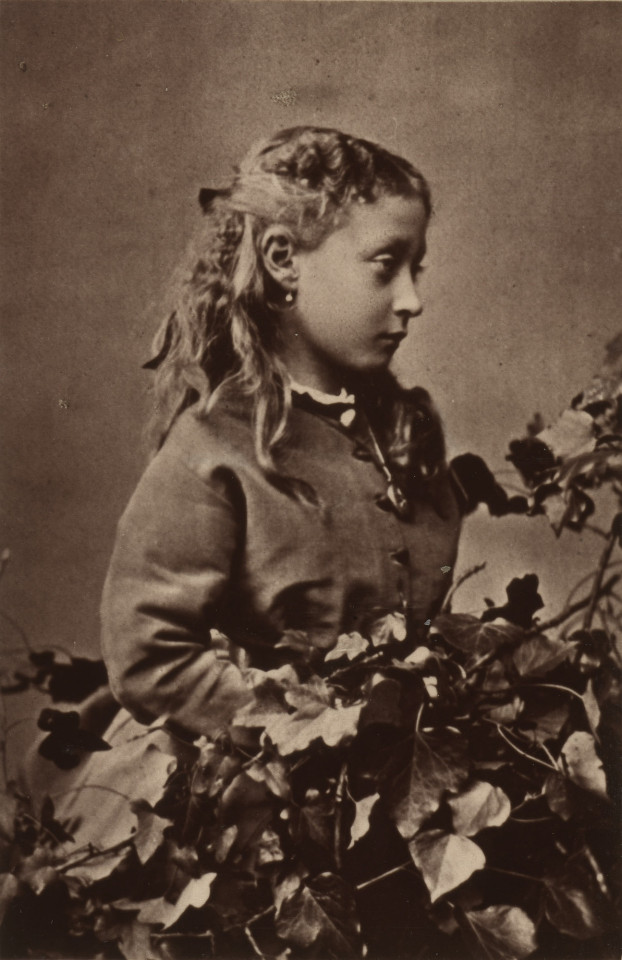
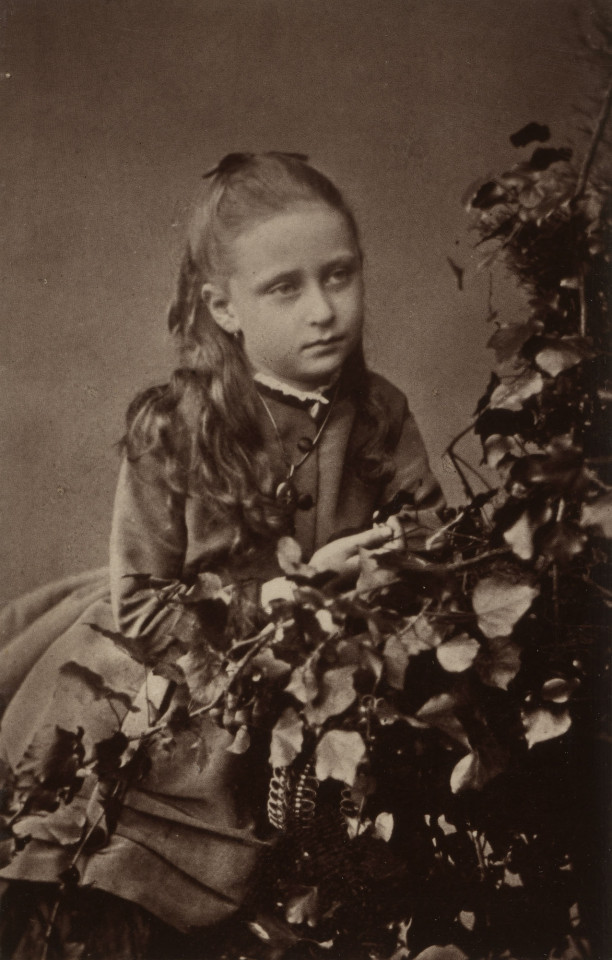
EXTREMELY rare photos of Princesses Victoria and Elisabeth of Hesse and By Rhine, early 1870s
Royal Collection Trust / © His Majesty King Charles III 2023
#SO RARE!!!#im so glad I found these!#🤍🤍🤍#princess victoria of hesse#princess elisabeth of hesse#hessian royal family#Victoria marchioness of Milford haven#princess Victoria of Battenberg#grand duchess elisabeth feodorovna#elisabeth feodorovna#elizabeth feodorovna#marchioness of Milford haven#rare photos#Hesse#ella of hesse#elisabeth of hesse#victoria of hesse#princess victoria#princess elisabeth#royal collection trust
169 notes
·
View notes
Text

Princess Alice of Battenberg and Tsar Nicholas II of Russia. About 1901.
Nicholas was married to Alexandra, who was the youngest sister of Alice's mother, Victoria. Alexandra and Victoria were born Princesses of Hesse and by Rhine and granddaughters of Queen Victoria via her second daughter, Alice.
In 1903 Alice would marry Prince Andrew of Greece and Denmark, a cousin of Nicholas' and her last born child would become Prince Philip, Duke of Edinburgh, the husband of Queen Elizabeth II. Alice was the grandmother of King Charles III.
Though congenitally deaf, Alice learned to read lips and speak English and German, and also later Greek, the language of her new homeland.
#russian royalty#royalty#romanovs#history#imperial russia#british royalty#german royalty#tsar nicholas ii#russian history#royal women#Princess Alice of Battenberg#Princess Andrew of Greece and Denmark#Princess Alice of Greece and Denmark#Greek Royalty
26 notes
·
View notes
Text

✧.* ~ Three Generations of British Victorias ~ ✧.*
Queen Victoria of Great Britain and Ireland, 1819-1901
Victoria Princess Royal, Crown Princess of Prussia, Empress of Germany, 1840-1901
Princess Viktoria of Prussia, Princess of Schaumburg Lippe, 1866-1929
Princess Victoria of Wales, 1868-1935
Princess Victoria Melita of Edinburgh, Grand Duchess Viktoria Feodorovna of Russia, 1876-1936
Missing from photo:
Princess Victoria of Hesse and By Rhine, Marchioness of Milford Haven, 1863-1950
Princess Helena Victoria of Schleswig Holstein, 1870-1948
Princess Victoria Eugenie of Battenberg, Queen Consort of Spain, 1887-1969
✧.*
#british royal family#queen victoria#Victoria Princess Royal#crown Princess Victoria of Prussia#empress victoria of germany#prussian royal family#princess Viktoria of Prussia#princess Viktoria of Schaumburg lippe#Princess Victoria of wales#princess Victoria#princess Victoria Melita#grand duchess Viktoria feodorovna of Russia#princess victoria of hesse#marchioness of Milford haven#Victoria of Battenberg#Princess Victoria Eugenie#princess victoria eugenie of battenberg#queen victoria eugenie of spain#spanish royal family#hessian Royal family#princess Helena Victoria of Schleswig Holstein
29 notes
·
View notes
Text
On 15 December 1948, Prince Charles was christened in the Music Room of Buckingham Palace.
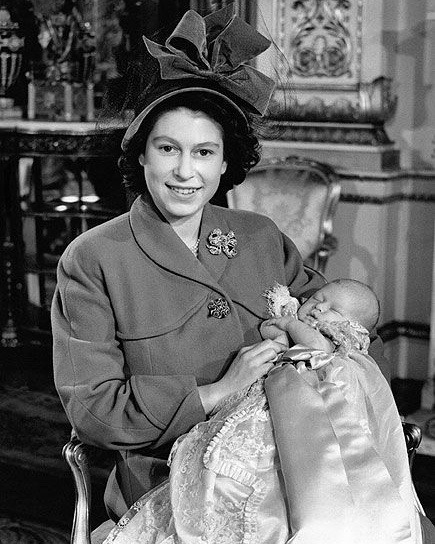

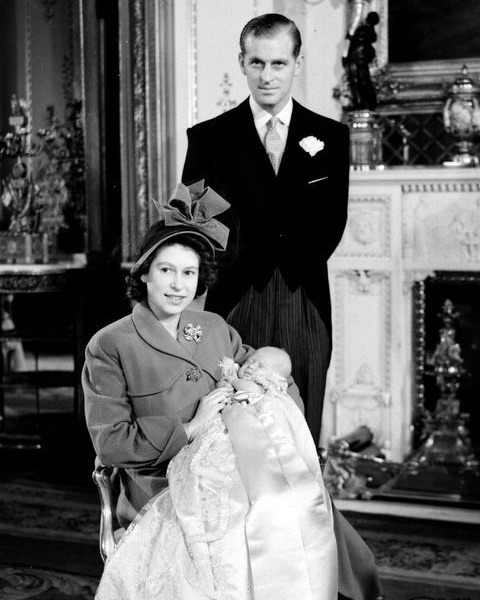
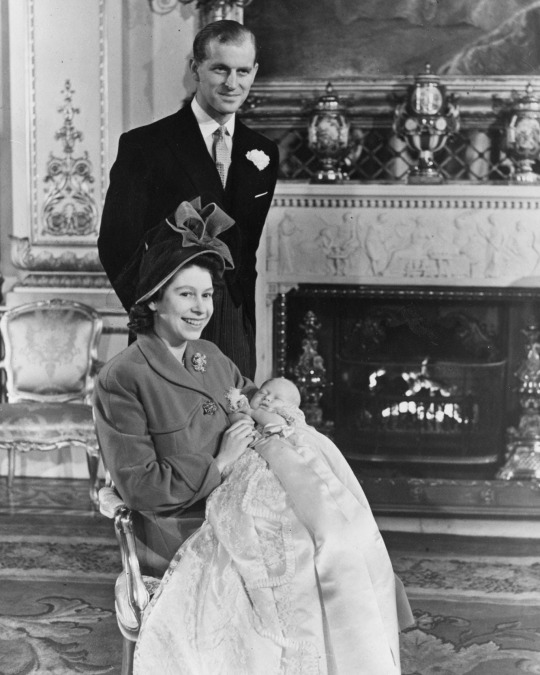
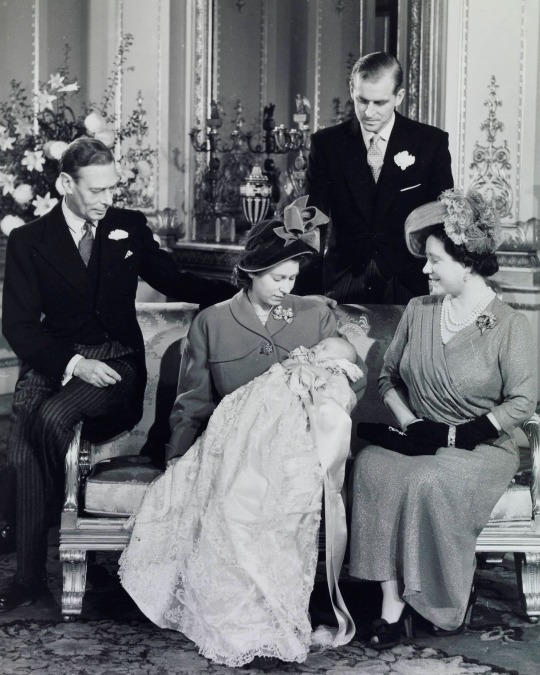

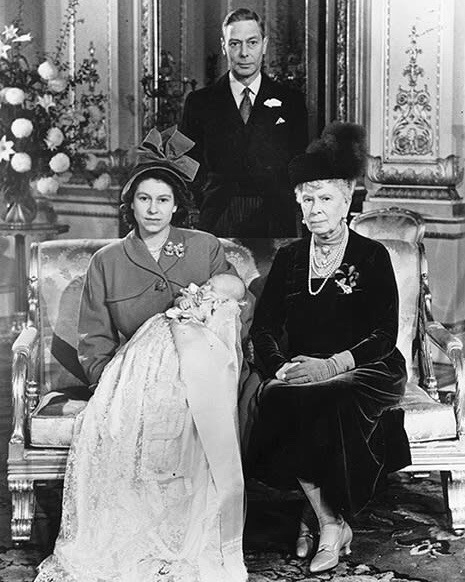

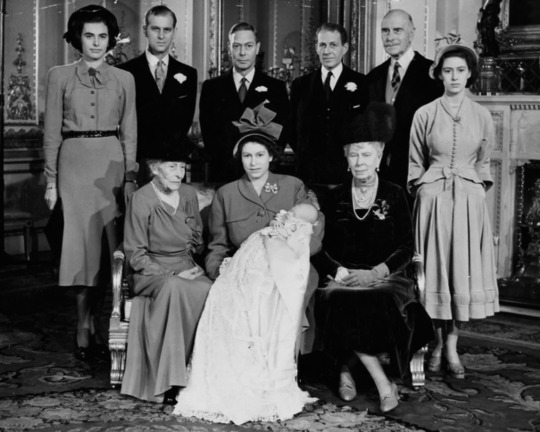

#e&p#prince charles#king george vi#queen mother#queen mary#princess margaret#patricia mountbatten#princess victoria of battenberg#david bowes-lyon#earl of athlone#brf christening
99 notes
·
View notes
Text

"Possibly no debutante ever enjoyed her first season more than did Princess Victoria Eugenie. Accompanied by her mother and Princess Beatrice of Saxe-Coburg, she went everywhere, and wherever she appeared, she won golden opinions by her beauty, her unaffected charm of manner, and her sweet winsomeness. Her delight in life was perfected by an inherent desire to give delight to others, and her gaiety was always tempered by a vivid gift of sympathy, which endeared her to young and old alike. Then, towards the close of her first season--while yet the great world was new to her, and witching and wonderful--Don Alfonso crossed the path of the young princess. Never was a more desperate case of love at first sight. If it was true that the King came upon a quest, his quest was over."
-- Albert Frederick Calvert on Princess Victoria Eugenie of Battenberg, who would marry King Alfonso of Spain. "Ena," as she was called, was a carrier of the hemophilia gene, and the disease was thus brought into the Spanish royal family. Although he was aware of the possibility, when it became clear that his son and heir had inherited the dreaded condition, Alfonso blamed Ena, and he never forgave her.
"A more elegant woman one rarely sees anywhere in the world. The eye of the Spanish people, quick and sensitive to taste and beauty, instantly caught all these details, and even if her nature, disposition, and character were not what they are, she would still be idolised for her beauty alone.
-- Kellogg Durland, 1911
#princess victoria eugenie of battenberg#de laszlo#portrait#Albert frederick calvert#kellogg durland#quotes
117 notes
·
View notes
Text

Princess Irene, Grand Duke Ernest, Grand Duchess Leonore, Princess Louise of Battenberg and Tsar Nicholas II.
#tsar nicholas ii#hesse#ernie#grand duke ernest of hesse#leonore of hesse#princess louise of battenberg#irene of hesse#princess irene#standart#nicholas ii#my own
19 notes
·
View notes